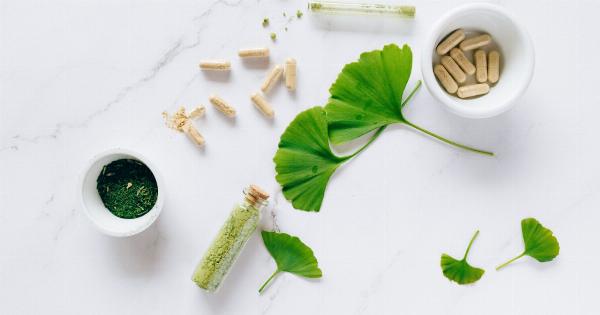Depression is a prevalent mental health condition that affects millions of people worldwide. While there are several conventional treatments available, many individuals seek alternative options due to concerns about side effects or lack of efficacy.
In recent years, a new plant called Golden Root has gained attention for its potential as a natural antidepressant. This article explores the origins, benefits, and scientific evidence behind Golden Root, highlighting why it could be a promising addition to depression treatment options.
The Origins of Golden Root
Golden Root, scientifically known as Rhodiola rosea, is a perennial flowering plant found in regions with cold climates, such as the Arctic and high-altitude areas of Europe and Asia.
It has a long history of traditional use in these regions, where it has been employed for centuries to combat stress, fatigue, and mood disorders.
The Science Behind Golden Root
Researchers have shown increasing interest in the potential antidepressant and mood-enhancing effects of Golden Root.
The plant contains several active compounds, including rosavins, salidroside, and flavonoids, which are believed to contribute to its therapeutic effects.
One of the primary mechanisms through which Golden Root exerts its antidepressant properties is by modulating the levels and activity of certain neurotransmitters in the brain, such as serotonin, dopamine, and norepinephrine.
These neurotransmitters play crucial roles in regulating mood, and imbalances have been linked to depression and other mood disorders.
Additionally, Golden Root possesses adaptogenic properties, meaning it helps the body adapt to and resist various stressors.
Chronic stress is a significant risk factor for depression, and Golden Root’s ability to reduce the impact of stress on the body may indirectly contribute to its antidepressant effects.
The Benefits of Golden Root for Depression
Several studies have investigated the effects of Golden Root on depression, with promising results.
A systematic review published in the journal Phytomedicine concluded that Golden Root extract significantly reduces symptoms of depression compared to a placebo. The review analyzed data from 11 studies involving over 900 participants and found that Golden Root extract demonstrated a clear antidepressant effect.
In another study published in the Nordic Journal of Psychiatry, researchers compared Golden Root extract to the popular antidepressant medication sertraline.
The results showed that both treatments were equally effective in reducing depressive symptoms, suggesting that Golden Root may be a viable alternative to conventional antidepressants.
Furthermore, Golden Root has been found to improve cognitive function and mental performance, which are frequently impaired in individuals with depression.
Its adaptogenic properties may support better concentration, memory, and overall cognitive function, thus enhancing the overall well-being of individuals dealing with depression.
Usage and Dosage
Golden Root is available in various forms, including capsules, powders, and liquid extracts. The appropriate dosage can vary based on various factors, such as the concentration of the product and individual characteristics.
It is crucial to consult with a healthcare professional or follow the instructions provided by the manufacturer to determine the most suitable dosage.
Typically, Golden Root extract capsules containing 200-600 mg are recommended for depression and other mood disorders.
It is advisable to start with a lower dosage and gradually increase it if needed, while closely monitoring any changes in symptoms or side effects.
Potential Side Effects and Precautions
In general, Golden Root is considered safe and well-tolerated when used as directed. However, some individuals may experience mild side effects, including dizziness, dry mouth, or nausea.
These effects are typically temporary and subside as the body adjusts to the supplement.
Golden Root may interact with certain medications, including blood thinners, antidepressants, and antidiabetic drugs.
Therefore, it is crucial to consult with a healthcare professional before starting Golden Root supplementation, especially for individuals taking prescription medications.
Caution during Pregnancy and Breastfeeding
Due to limited research, the safety of Golden Root during pregnancy and breastfeeding has not been firmly established.
Therefore, it is advisable for pregnant or lactating individuals to avoid Golden Root supplementation or consult with their healthcare provider for guidance.
Conclusion: A Promising Addition to Depression Treatment
In conclusion, Golden Root, also known as Rhodiola rosea, is a natural plant with potential antidepressant properties.
Its ability to modulate neurotransmitters and enhance the body’s response to stress has shown promising results in reducing depressive symptoms. While more research is still needed to fully understand the mechanisms of action and long-term effects, Golden Root could offer a viable alternative or adjunct to conventional antidepressant treatments.































